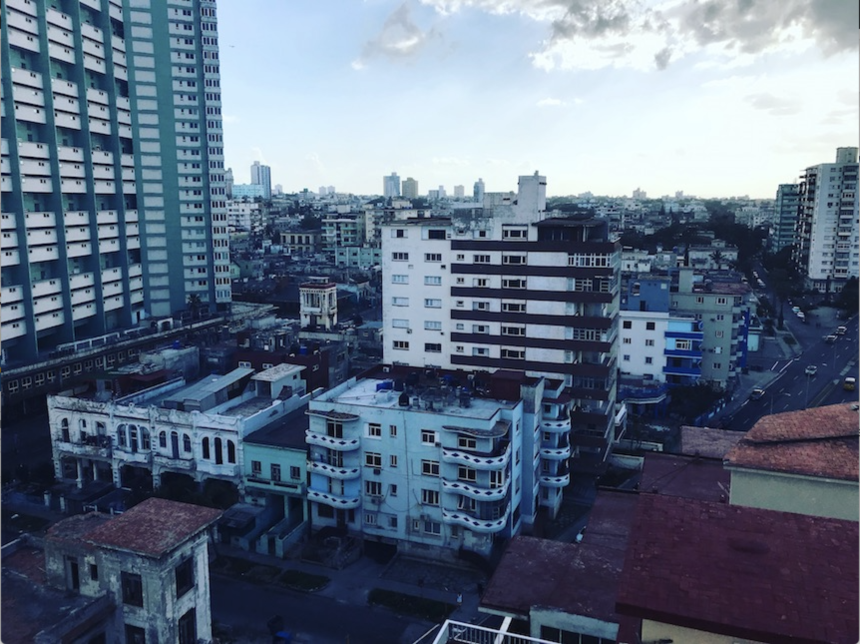

Last week, members of our Latin America Security Report editorial team visited Havana, Cuba to work on an upcoming report on the future of U.S.-Cuba relations. Around the same time, researchers released findings from a state department supported study on Neurological Symptoms Among U.S. Diplomats in Cuba. Norma Magallanes, Associate Editor for Global Health News Wire has been following this story since 2016. Below is a snapshot.
In late December 2016, U.S. government personnel in Havana, Cuba, visited the embassy medical unit after experiencing unusual sound and sensory phenomena and the onset of neurological symptoms. The U.S. Department of State convened an expert panel in July 2017, which came to a consensus that the initial findings were most likely related to neurotrauma from a non-natural source and the department recommended further investigation of the symptoms. The University of Pennsylvania’s Center for Brain Injury and Repair was selected to coordinate the evaluation, treatment and rehabilitation of these patients.
Who and When: 21 government personnel (11 women and 10 men) identified by the State Department and evaluated an average of 203 days following exposure to reported sound (described as “buzzing,” “grinding metal,” “piercing squeals” or “humming”) and sensory phenomena (described as pressure-like or vibrating and likened to air “baffling” inside a moving car with the windows partially rolled down)
What (Study Measures): Audible and sensory phenomena coming from a distinct direction but from an unknown source (exposure); descriptions of symptoms and personnel experience with rehabilitation and return to work (outcomes)
How (Study Design): This was a case series, which describes the clinical course or outcomes of a group of patients. Researchers cannot control for exposures or differences that could explain patient outcomes and they cannot prove a causal relationship.
Study Limitations: To protect patient privacy, certain details typically reported in a case series were omitted, including specifics about geography, the relationship between individuals and individual demographics.
Study Conclusions: The unique circumstances of these patients and the clinical manifestations detailed in this report raise concern about a new mechanism for possible acquired brain injury from an exposure of unknown origin.
Listen:
Douglas H. Smith, MD, of the University of Pennsylvania’s Department of Neurosurgery and Center for Brain Injury and Repair, and Randel Swanson II, DO, PhD, of the University of Pennsylvania’s Physical Medicine and Rehabilitation department, summarize their findings from a clinical evaluation of US government personnel reporting neurologic symptoms after exposure to directional auditory and sensory phenomena during their official postings in Havana, Cuba.
Related material: “Neurological Symptoms Among U.S. Diplomats in Cuba,”


